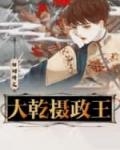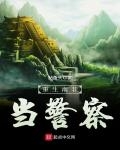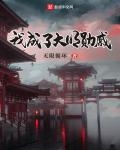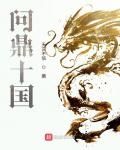Chapter 16 Rewarding according to merit
It was getting light.
Early in the morning, Qingji held a grand court meeting with his ministers in the main hall.
As early as when the army entered the city, Qingji had already sent people to inform all the ministers and officials about the court meeting, so all the officials who were supposed to come attended.
At this time, Qingji had already taken off his armor and was wearing the emperor's regular clothes!
Because he had not yet worn the crown, although Qingji was already the de facto King of Wu, it was still inconvenient for him to claim to be alone and wear the crown.
At this time, Qingji was seen wearing a black tights, with a white silk feather robe of high-quality material embroidered with dragons and phoenixes, and a long crown on his head. He looked heroic, magnificent and majestic.
Being born into a royal family and having good genes, Qingji was naturally born with a good appearance.
"Your Majesty, I pay my respects to you! May your Majesty live forever, forever, forever!"
Led by the eunuchs, Qingji entered the hall from the left door, stepped onto the stage, and accepted the thunderous worship from the ministers and officials.
Qingji stood in front of the throne, looking down at the ministers who were paying homage to him below the platform. For a moment, he couldn't help but feel his heart surge with emotion!
The ruler of a country holds the power of the country and has the power of life and death.
Is this something that many people have dreamed of since ancient times?
In order to reach this position, countless people have lost their lives and been beheaded !
The monarch represents the supreme being in this country.
When Qingji stood here and sat on the throne, how could his feelings not be complicated?
"No need to be polite, stand up!"
"Thank you, Your Majesty!"
As Qingji raised his hand casually, all the ministers and officials under the throne stood up, sat on their own cushions, and sat upright.
In this era, kneeling or sitting on the floor is very particular!
In ancient times, sitting was the same as kneeling, but kneeling was different from sitting.
When sitting, one can sit upright or on the heels.
For those who are kneeling, both knees should be on the ground, body should be straight, buttocks should not touch the heels!
The reason why I said before that sitting is the same as kneeling is that you can take the kneeling posture while sitting, but you cannot take the sitting posture while kneeling.
Also, try to sit on your heels when talking, and kneel when eating, which is also in line with the human body structure!
When sitting in this way, you are not allowed to spread your legs out like a winnowing basket.
This is an indecent gesture and impolite to others, so it has always been prohibited.
During the Spring and Autumn Period and the Warring States Period, although there were differences in status between monarchs and ministers, they all knelt or stood during banquets and meetings, with the only difference being their positions during meetings and meals.
When the court discusses matters, the north and the east are the most important!
It is recorded in the Book of Rites: Mingtang Seat: In the past, Duke Zhou met with the princes in the Mingtang Seat: the emperor stood facing south, holding an axe on his back; the three dukes stood in front of the middle steps, facing north and going east.
The seat of the princes is on the east side of the steps, facing west and going north.
The countries of the various princes are located to the west of the western steps, facing east and going north.
From then on, the north and east were in superior position until the end of the Qing Dynasty!
The opposite is true for banquets. It is recorded in the Book of Rites: Quli Shang: For a banquet, if you face south or north, the west is the best; if you face east or west, the south is the best.
It can be seen that banquets are best held in the west and south!
It is worth mentioning that since the Three Sovereigns and Five Emperors, up to now, the monarch and his subjects have always discussed matters while sitting down, and would not kneel down at every turn.
Later it gradually evolved into officials standing in front of the monarch!
Historically, the regulation of kneeling only began in the Yuan Dynasty.
It began to spread during the Ming and Qing dynasties and reached its peak. It not only degraded personal dignity, but also fostered a servile character in many people, thus causing great harm!
At this time, Qingji, who was sitting on the throne, looked around at the ministers under the steps, who were like old monks in meditation, and said loudly: "I, Qingji, was able to enter Wudu and defeat the bandits successfully, and you all have made great contributions!"
"This war is a war to restore order and restore order. In a civil war, Qingji will only punish the ringleader and not the rest of the gang!"
"Qingji can deal with all the former associates of the traitor Ji Guang as appropriate."
"Those who have made contributions will be rewarded, and those who have made mistakes will be punished!"
"Jizi!"
Qingji called out, but there was no response from the steps below, and he couldn't help feeling puzzled.
"Where is Ji Zi?"
At this time, the senior official Bei Li came out holding a ivory tablet and said, "Your Majesty, Jizi is at home preparing...preparing the bodies of his descendants and grandchildren for the funeral, so I am asking for leave!"
Take leave?
Qingji didn't know about this, but he could sympathize with Jizha.
After all, it is not easy for Ji Zha, at such an old age, to see his son die.
"Issue an imperial decree to grant Ji Zi's two sons and one grandson a burial with the rites of a feudal lord, and to build a shrine for him at Xiang Lake. On the day of his burial, I...I will lead the ministers and officials to personally offer sacrifices to comfort his spirit in heaven!"
"The king is kind and benevolent!"
All the ministers shouted in great praise.
Being buried with the rites of a feudal lord and having a temple built to worship him is a great honor and a great honor for the dukes, ministers and officials!
This not only shows Qingji's sympathy and respect for Ji Zha, but also reflects Qingji's advocacy of the noble character of sacrificing one's life for righteousness.
Under Ji Zha's words and deeds, it is not easy for his descendants to achieve this!
"Meng Ben and Hei Fu, come forward and listen!"
"I will be here!"
Two of Qingji's trusted generals immediately stepped forward.
"You followed me in hunting in Wei, recruited soldiers and trained them, led the army to fight against the rebels, and shared hardships with me. This is a great achievement."
"I hereby appoint you two as senior officials, with fiefs of 300 households each in Hongshang and Yanling, and grant each of you a superior mansion and 20 servants!"
Hearing this, Meng Ben and Hei Fu were overjoyed and immediately kowtowed to express their gratitude, saying, "We thank the king for his reward! May the king live forever!"
The rank of Shang Daifu was indeed not low, and Qingji's reward was very generous.
Not to mention the mansion and servants, the fief of 300 households is no small matter!
The ministers and officials of various countries in the world relied on fiefs as their salary for generations and had the right to collect taxes, so they were called fiefs.
The ministers and officials enjoyed the right to rule within their fiefs and assumed obligations to the monarch.
Now Heifu and Mengben have been promoted to the rank of senior officials, which can be said to be a step to heaven!
But, this is what they deserve.
It's just because they followed Qingji in his early years of fighting in the east and the west, and never left him when he was in trouble. They were loyal and had made many contributions!
Now that Qingji has gained power, how can he forget his meritorious officials?
Then, Qingji rewarded the old ministers of King Liao of Wu based on their merits. He only rewarded them with some silk, linen and money, but promoted the generals and soldiers who had made contributions to the army and gave them houses and servants.
This is a happy scene!
Only those ministers who were originally promoted by Helu were still worried.
But Qingji did not deal with these people immediately!
Qingji still has some tolerance for others.
As a monarch, Helu was indeed able to recognize talent and appoint the right people to the right positions!
Therefore, Qingji believed that there must be many talented people among these old ministers of Helu.
Since Qingji has become the King of Wu, we can let bygones be bygones and keep them in office for observation for a while!
However, what made Qingji depressed was that in addition to Ji Zha, another meritorious minister, Sun Ping, was also absent from the court meeting.






